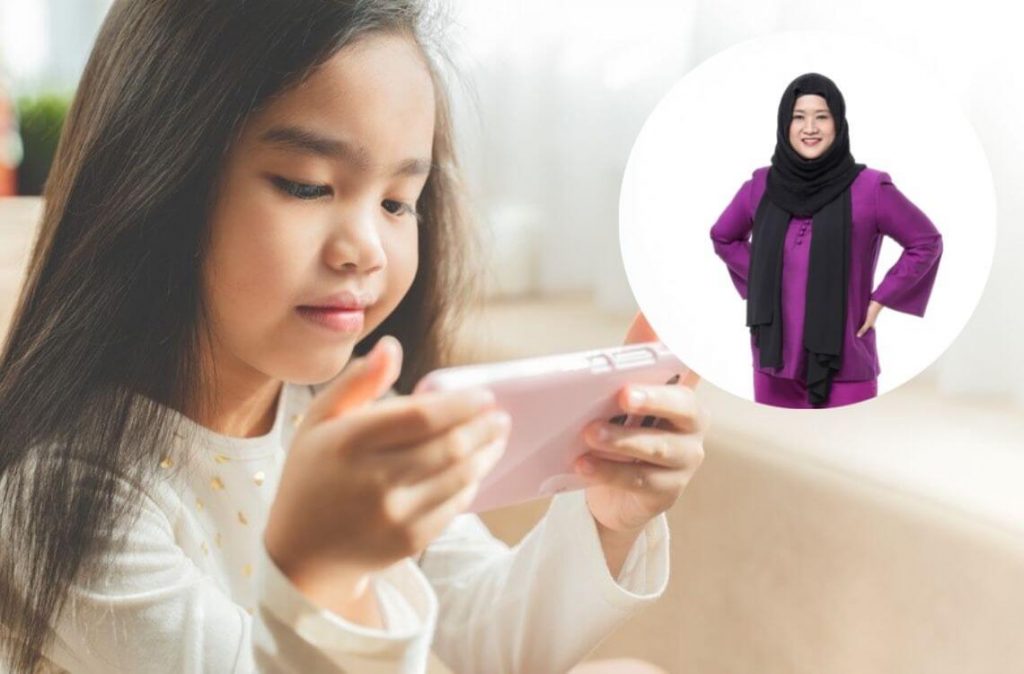Social and digital platforms have fast become a form of mindless virtual entertainment space which allows parents to get a little breather from their children.
It is a space that provides endless entertainment and edutainment for children as young as two, who more often than not wind up getting addicted.
Yes, screen time is pretty much unavoidable in this technological era but have parents ever stopped to think of its implications?
What is being watched by their child? What type of content is being consumed and is it a safe space?
Toddlers and children up to the age of 13 or even older have an active mind which works like a sponge for content.
Without the benefit of experience, they may make bad judgement calls and may simply absorb all forms of content, be it good or bad.
Platforms like YouTube, Facebook, Twitter, Instagram, TikTok, Snapchat and other social media platforms carry a gigantic bank of unfiltered content which are often unregulated by its content creators.
Anyone can create content on these platforms, while being completely ignorant of or unconcerned with whoever is consuming the content, regardless of age.
While these platforms cannot be erased from your child’s social media vocabulary, it is more crucial than ever for parents to practice and advocate self-regulation at home.
“Self-regulation begins at home and it is a worthwhile skill for children to bring into adulthood. It should be seen as a life-skill, just like swimming. We will never allow our child to play in the sea without first teaching them how to swim right? We will also never take our eyes away from young children while swimming because they are susceptible to the risks at such a young age.”
“The same goes for allowing our children to venture into online waters. Parents must first equip their children with the knowledge of self-regulation and open their eyes to the dangers that lurk online. Children and adults benefit from learning how certain types of content can affect them and what they can do to regulate their own consumption of such contents”, said Communications and Multimedia Content Forum of Malaysia (Content Forum) executive director Mediha Mahmood.
She added that constant communication and engagement with young children is an important first step for a parent. Parents should always take the initiative to be in the loop and be aware of what sort of content is being consumed by their children.
Self-regulation can easily be done with the help of the Malaysian Communications and Multimedia Content Code (Content Code), which is a set of guidelines drawn up by the Content Forum to promote good practices and standards of content amongst content creators and consumers.
This is even more pressing for tweens between the ages of nine and 13, who are no longer children but not quite teenagers. These are the impressionable years as it is at this age where they are most easily influenced and swayed by content published on social media and social networking sites.
On social networking sites, anyone of any age can easily connect with your child and start up a conversation.
Worst case scenario, it could be a paedophile on the other end of the chat or other tweens encouraging unhealthy thoughts or resorting to anti-social behaviour such as intimidation, verbal abuse or cyberbullying.
Children are digital natives and it would neither be fair nor productive for parents to completely ban them from accessing the internet and social media. The good news is, online platforms do provide an avenue for self-regulation,
said Mediha.
Parents can take control of what sort of content is suitable for consumption and filter it accordingly. Utilising features or settings such as parental locks, filters, timing locks, and security blocks is a crucial first step of self-regulation.
Parents, who know their children best and have their best interest at heart, are empowered to filter and block danger zones and create a safe space for their children regardless of age.
While putting in place such filters and parental locks may only work for children of a certain age, parents can also promote self-regulation among their older children by constantly engaging them in a conversation about their social media activities.
Parents should always be aware of what their children are up to behind the screens of gadgets that they seem to eat and sleep with.
“Self-regulation is best practised by every single person in the content ecosystem. By self-regulating content and recognising the potentially harmful and offensive content available, online consumers can also react to it by reporting such content to the respective authorities. As for children, education and empowerment by self-regulation encourage them to report any offensive, unhealthy or intimidating content to their parents. By doing so, both parents and children can create a safe and healthy online environment themselves,” said Mediha.
Likewise, self-regulation is also important when children are creating content online.
Be it a simple comment posting or a full-fledged audiovisual posting, they should be equipped with the knowledge of self-regulation and judge what is deemed fit for public consumption.
Understanding this from a young age ensures that future generations will continue to be responsible and learned content creators and consumers.
